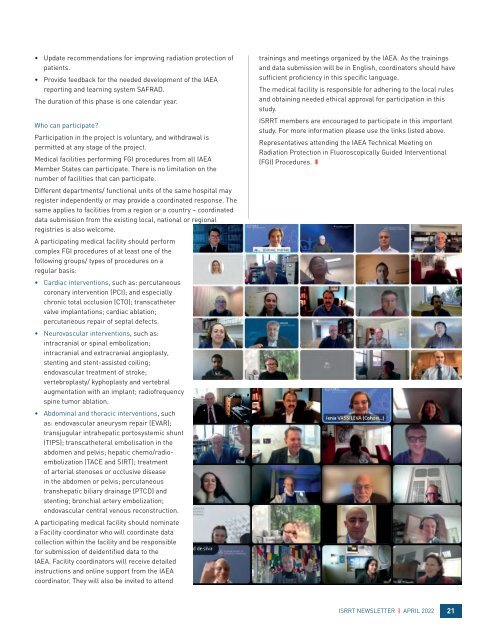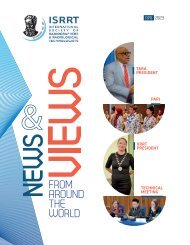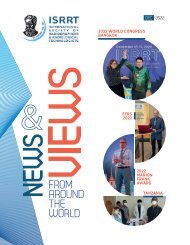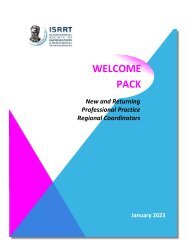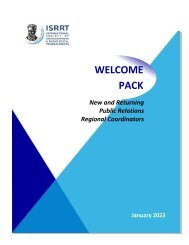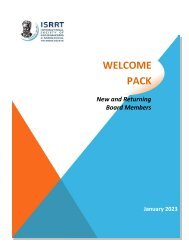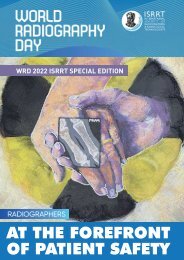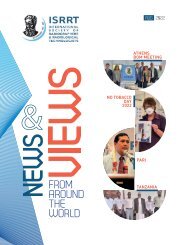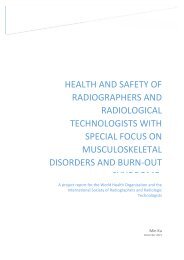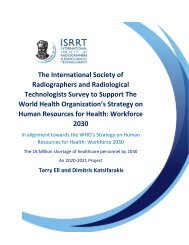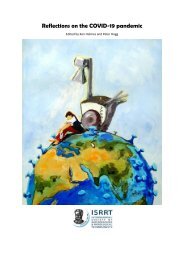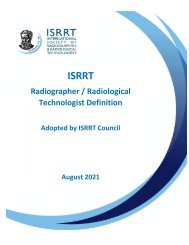N_V_April_2022_WEB_LR
You also want an ePaper? Increase the reach of your titles
YUMPU automatically turns print PDFs into web optimized ePapers that Google loves.
• Update recommendations for improving radiation protection of<br />
patients.<br />
• Provide feedback for the needed development of the IAEA<br />
reporting and learning system SAFRAD.<br />
The duration of this phase is one calendar year.<br />
Who can participate?<br />
Participation in the project is voluntary, and withdrawal is<br />
permitted at any stage of the project.<br />
Medical facilities performing FGI procedures from all IAEA<br />
Member States can participate. There is no limitation on the<br />
number of facilities that can participate.<br />
Different departments/ functional units of the same hospital may<br />
register independently or may provide a coordinated response. The<br />
same applies to facilities from a region or a country – coordinated<br />
data submission from the existing local, national or regional<br />
registries is also welcome.<br />
A participating medical facility should perform<br />
complex FGI procedures of at least one of the<br />
following groups/ types of procedures on a<br />
regular basis:<br />
• Cardiac interventions, such as: percutaneous<br />
coronary intervention (PCI); and especially<br />
chronic total occlusion (CTO); transcatheter<br />
valve implantations; cardiac ablation;<br />
percutaneous repair of septal defects.<br />
• Neurovascular interventions, such as:<br />
intracranial or spinal embolization;<br />
intracranial and extracranial angioplasty,<br />
stenting and stent-assisted coiling;<br />
endovascular treatment of stroke;<br />
vertebroplasty/ kyphoplasty and vertebral<br />
augmentation with an implant; radiofrequency<br />
spine tumor ablation.<br />
• Abdominal and thoracic interventions, such<br />
as: endovascular aneurysm repair (EVAR);<br />
transjugular intrahepatic portosystemic shunt<br />
(TIPS); transcatheteral embolisation in the<br />
abdomen and pelvis; hepatic chemo/radioembolization<br />
(TACE and SIRT); treatment<br />
of arterial stenoses or occlusive disease<br />
in the abdomen or pelvis; percutaneous<br />
transhepatic biliary drainage (PTCD) and<br />
stenting; bronchial artery embolization;<br />
endovascular central venous reconstruction.<br />
A participating medical facility should nominate<br />
a Facility coordinator who will coordinate data<br />
collection within the facility and be responsible<br />
for submission of deidentified data to the<br />
IAEA. Facility coordinators will receive detailed<br />
instructions and online support from the IAEA<br />
coordinator. They will also be invited to attend<br />
trainings and meetings organized by the IAEA. As the trainings<br />
and data submission will be in English, coordinators should have<br />
sufficient proficiency in this specific language.<br />
The medical facility is responsible for adhering to the local rules<br />
and obtaining needed ethical approval for participation in this<br />
study.<br />
ISRRT members are encouraged to participate in this important<br />
study. For more information please use the links listed above.<br />
Representatives attending the IAEA Technical Meeting on<br />
Radiation Protection in Fluoroscopically Guided Interventional<br />
(FGI) Procedures.<br />
ISRRT NEWSLETTER | APRIL <strong>2022</strong><br />
21


